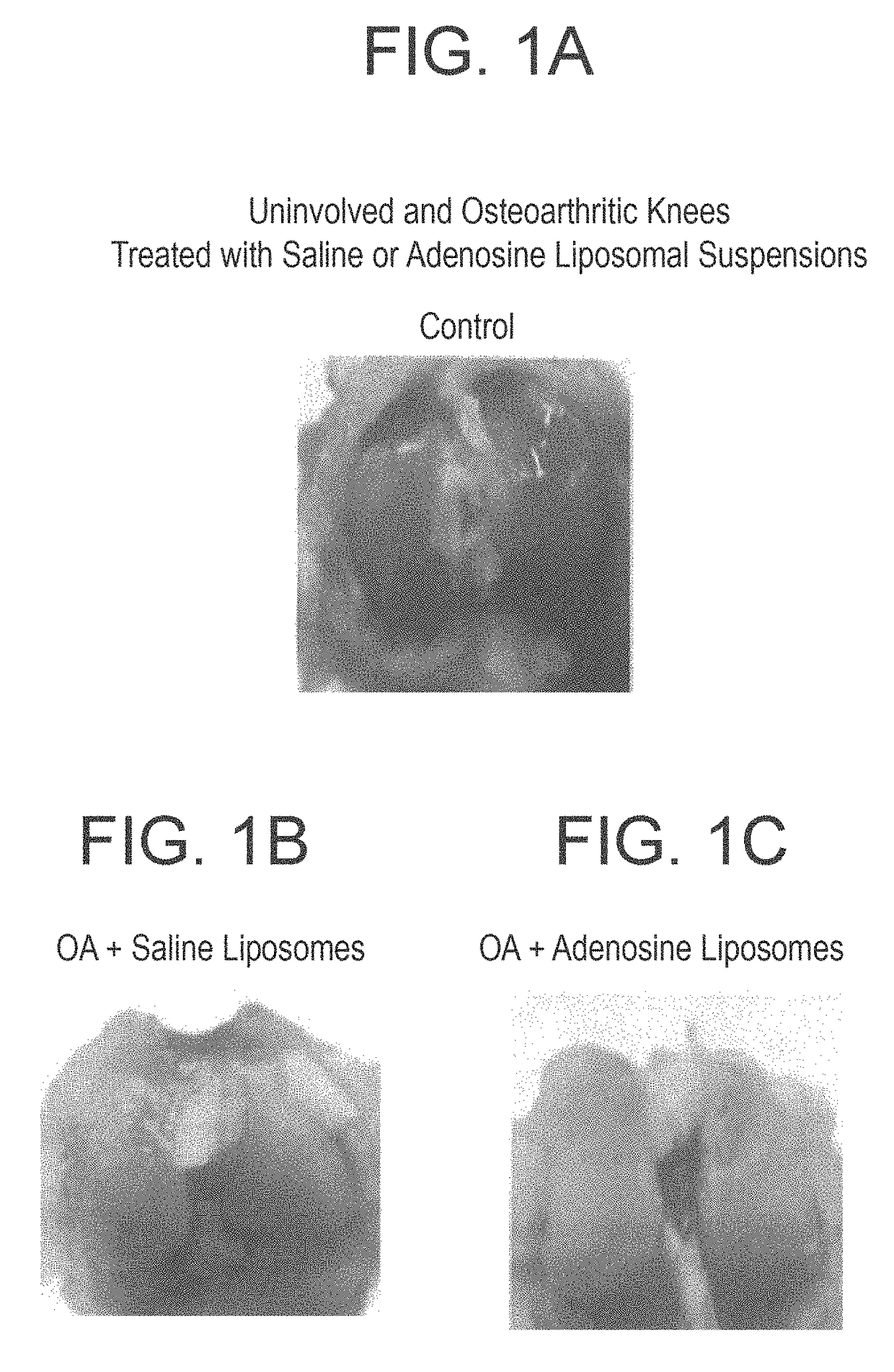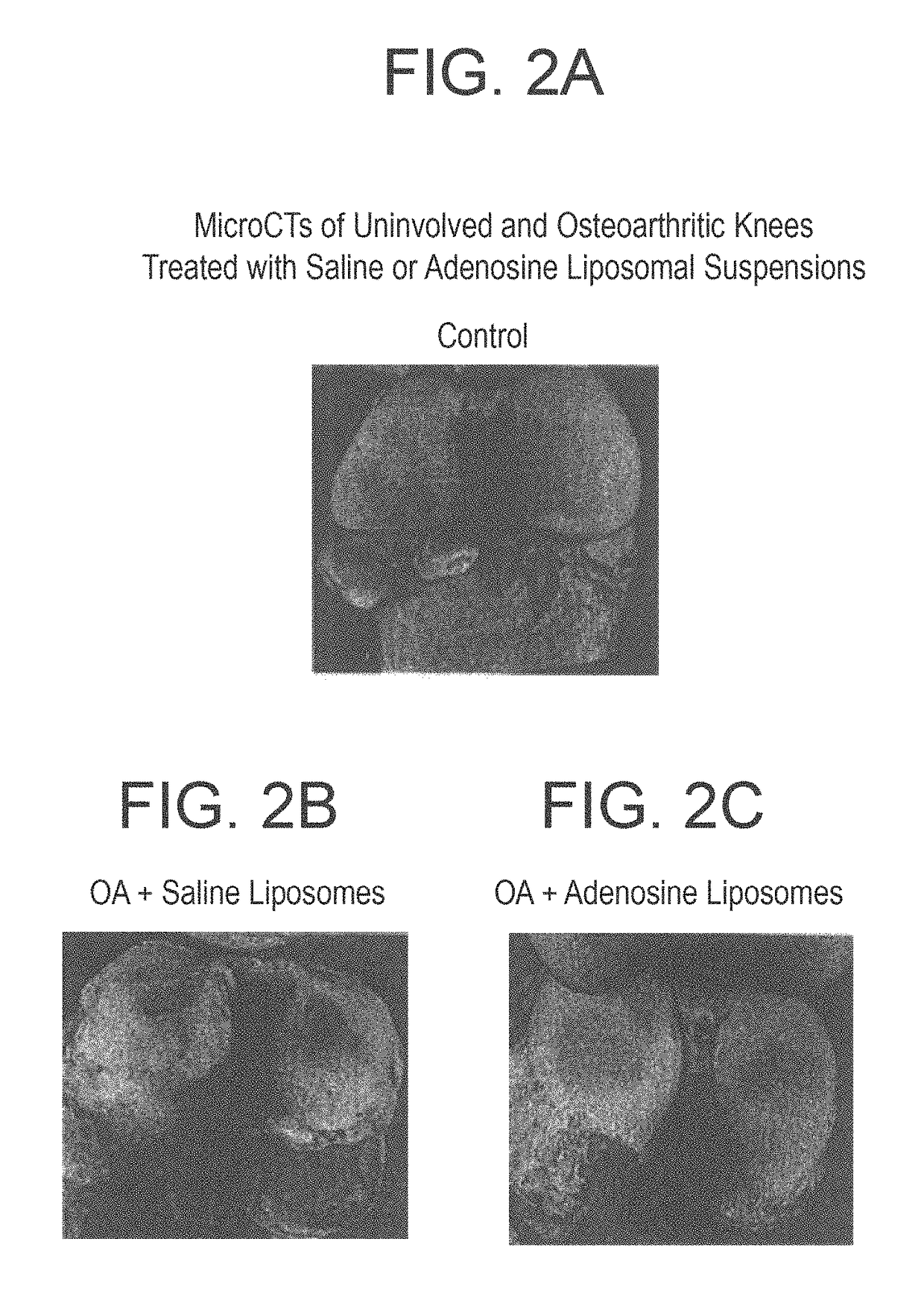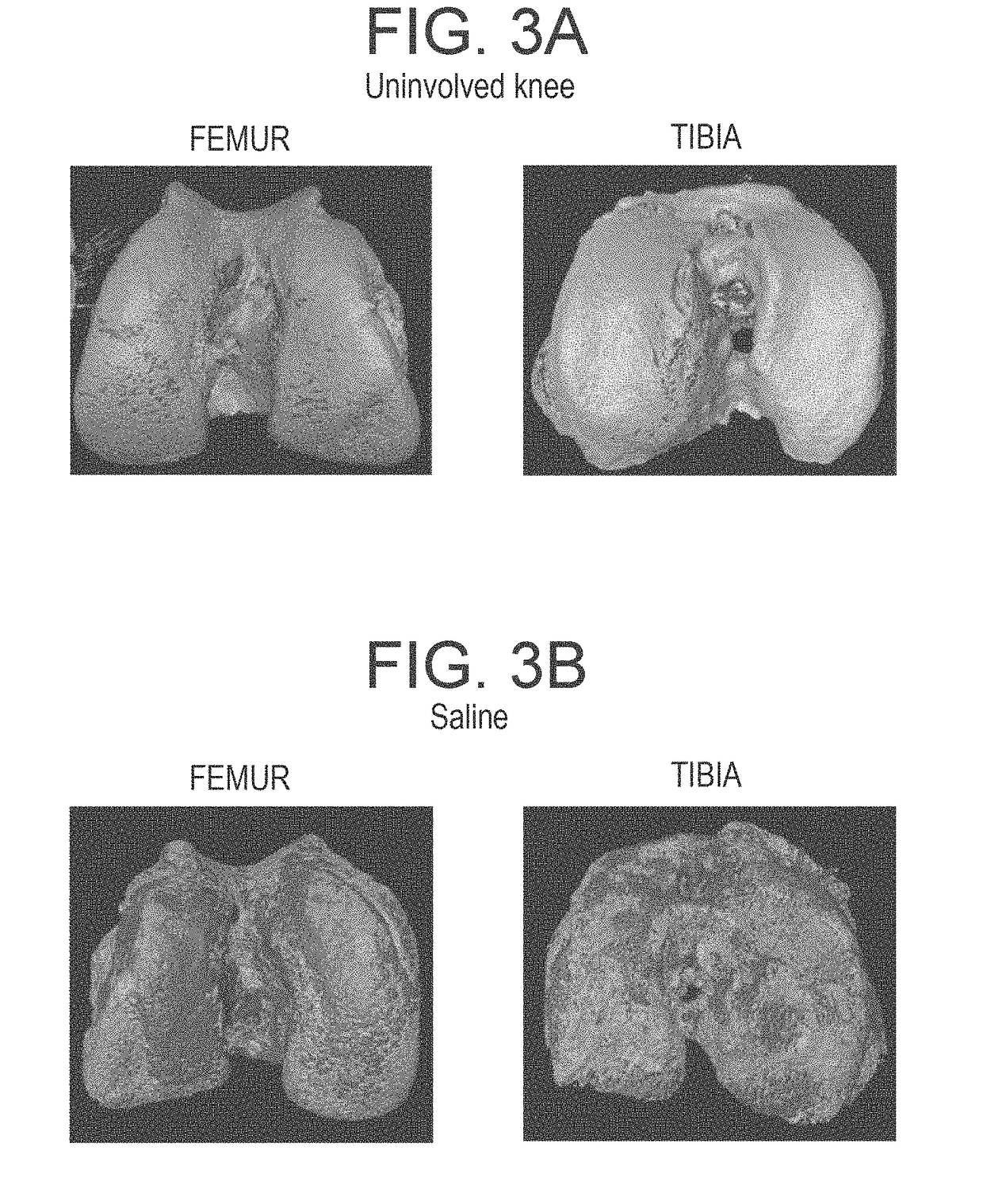Methods and compositions for treating osteoarthritis and promoting cartilage formation
a technology of osteoarthritis and compositions, applied in drug compositions, heterocyclic compound active ingredients, organic non-active ingredients, etc., can solve the problems of decreased mobility, decreased mobility, and decreased mobility of current treatment options, so as to reduce side effects, minimize potential damage to unaffected cells, and increase the therapeutic index
- Summary
- Abstract
- Description
- Claims
- Application Information
AI Technical Summary
Benefits of technology
Problems solved by technology
Method used
Image
Examples
example 1
Preparation of Liposomes
[0107]Liposomes were prepared using soybean oil at a 5.5:1 weight ratio with lipid phase consisting of phosphatidyl choline and cholesterol (1:0.5 by molar ratio) the day before the injection. Ethanol (100 mg) was added to soybean oil (0.5 gr) and adenosine (300 mg). The lipid phase (90 mg) containing phosphatidyl choline and cholesterol (1:0.5 by molar ratio) was added to the previous solution and emulsified at 15,000 rpm for 10 minutes. Saline (10 ml) along with glycerin (250 mg) was added to the lipid phase and was homogenized at 15,000 rpm for 20 minutes. It was followed by sonication for 1 minute at 100% duty cycle. Liposomes containing ZM241385, CGS21680, Dipyridamole are prepared in a similar fashion. The dose injected in each rat knee was 1 mg / Kg. The adenosine retention in liposome particles was tested by using HPLC as previously described by Cronstein et al., Journal of Experimental Medicine, 1983; 158:1160-1177.
example 2
[0108]Induction of Post-Traumatic Osteoarthritis (PTOA) in Rats and Treatment with Adenosine in a Liposome Formulation
Materials and Methods
[0109]The PTOA model is a non-invasive method for inducing anterior cruciate ligament (ACL) rupture in rat knees in vivo with a single load of tibia compression overload. For tibial loading, animals were anesthetized and maintained on 1-3% isoflurane. The left hindlimb was positioned between two loading platens: an upper platen that held the flexed ankle at approximately 30 degrees of dorsiflexion and a lower platen that held the flexed knee. The platens were aligned vertically in an electromagnetic materials testing machine (Bose ElectroForce 3200, Eden Prairie, Minn.). A preload of 1 N was applied to the knee before a single dynamic axial compressive load was applied.
[0110]Rats were treated with a liposome formulation containing high concentration of adenosine (10 mg / Kg), or with empty liposome, or with saline for 8 weeks (6 animals for each gr...
example 3
[0113]Induction of Post-Traumatic Osteoarthritis (PTOA) in Rats and Treatment with an Adenosine Receptor Agonist in a Liposome Formulation.
Materials and Methods
[0114]The PTOA model is a non-invasive method for inducing anterior cruciate ligament (ACL) rupture in rat knees in vivo with a single load of tibia compression overload. For tibial loading, animals were anesthetized and maintained on 1-3% isoflurane. The left hindlimb was positioned between two loading platens: an upper platen that held the flexed ankle at approximately 30 degrees of dorsiflexion and a lower platen that held the flexed knee. The platens were aligned vertically in an electromagnetic materials testing machine (Bose ElectroForce 3200, Eden Prairie, Minn.). A preload of 1 N was applied to the knee before a single dynamic axial compressive load was applied.
[0115]Rats were treated with a liposome formulation containing a high concentration of an adenosine A2A receptor agonist, CGS21680 (c. 10 mg / Kg), or with an em...
PUM
| Property | Measurement | Unit |
|---|---|---|
| concentration | aaaaa | aaaaa |
| molecular weight | aaaaa | aaaaa |
| molecular weight | aaaaa | aaaaa |
Abstract
Description
Claims
Application Information
 Login to View More
Login to View More - R&D
- Intellectual Property
- Life Sciences
- Materials
- Tech Scout
- Unparalleled Data Quality
- Higher Quality Content
- 60% Fewer Hallucinations
Browse by: Latest US Patents, China's latest patents, Technical Efficacy Thesaurus, Application Domain, Technology Topic, Popular Technical Reports.
© 2025 PatSnap. All rights reserved.Legal|Privacy policy|Modern Slavery Act Transparency Statement|Sitemap|About US| Contact US: help@patsnap.com



